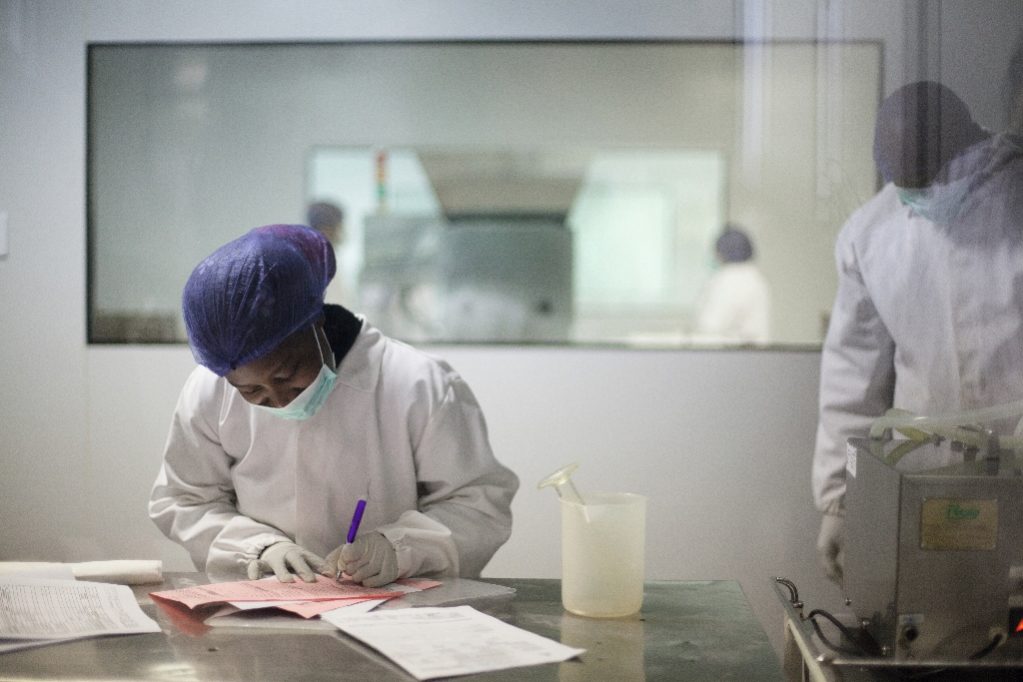For thousands of years, humans have ground plants and animals to cure the sick. It was a time long before bread mould could also cure a headache. But these days, the tinctures and potions of old have taken a back seat to contemporary medicine.
Not so for complementary medicines in South Africa, an industry that is now worth $750 million, according to Peter Kreft, CEO of CoMED Health, who own brands Bioter Health and Natura, some of South Africa’s largest manufacturers of complementary medicine.

This growth has now been stinted thanks to new regulations released by the South African government’s health regulators, the Medicines Control Council (MCC), since November 2013. The laws could mean as much as 50-60% of the industry having to take their cures off the shelves, says Kreft.
The MCC’s statement reads: “It has come to the attention of the National Department of Health that an increased number of so-called complementary medicines are being sold in the country which may pose significant risks to the South African public. For this reason the Minister of Health has called for the registration of these complementary medicines by amending the Medicines and Related Substances Act, 1965 (Act 101 of 1965) on 15 November 2013 making it a requirement for the MCC to evaluate and pronounce on the safety, quality and efficacy of these medicines.”
Loading...
The MCC issued a deadline of February 15 for complementary medicines to place disclaimers on their products, as part of the first phase of the MCC’s revision process. This relabeling, according to Kreft, is not only costly to the industry but leaves very little room to market a product’s uses. The disclaimer will have to read that the product in question is yet to be evaluated by the MCC, and is not intended to diagnose, treat, cure or prevent any disease.
“I think like most other companies, we’d be in trouble, because it would affect 20 percent to 30 percent of our turnover. And if you take 20 percent to 30 percent of our top line and look at the infrastructure that we need to keep going here – and we do our absolute best to be compliant with regards to regulatory requirements – we will no longer be able to do this and probably be faced with either amalgamating with others that could bring up the additional turnover and hence also a bottom line, or closing our doors which I would be very loath to do,” says Kreft.
For Danny Pillay, President of the Homeopathic Alliance of South Africa and a practising homeopathic doctor in Sandton, Johannesburg, the regulations are a much needed remedy.
“When you have someone committing to a safe manufacture process and then all of a sudden you have someone producing their goods in their backyard and selling it as a supplement, or a product. That is endangering the public… The reality is there are far too many unregistered persons that are illegally practising and sometimes some quarters of industry provide the products,” says Pillay.
Pillay explains that the medicines claiming to be Schedule 2 or 3 drugs will be most affected. These are high-risk, prescription-only drugs that claim to treat cardiac, diabetic or dietary related conditions. Schedule 0 drugs (low risk, over-the-counter drugs which form the majority of complementary medicines) have less stringent requirements than higher risk drugs.

“Because products were not registered as medicines previously, there has not been enough drive or need to provide medical proof. We are not talking randomized trials all the time but we need empirical proof showing that there are studies that see the value of these medicines… There is now some burden on the manufacturer when they make a claim on a drug that has a higher risk,” says Pillay.
The cost of regulated medicine may be hard for customers and manufacturers to swallow. What once cost manufacturers $190 to register a product, now costs $470 and as much as $1,300 for some products. This excludes the costs for providing clinical proof of a drug’s efficacy and safety.
In the meantime, customers may have to wait months or even years for their embargoed products, while the MCC re-evaluates and registers the backlog of thousands of drugs.
When FORBES AFRICA inquired into the dangers of professionals acting illegally and the dangers of illegal drugs on the market with the Allied Health Professions Council of South Africa (AHPCSA), the statutory health body established to control all allied health professions, its response was in support of the MCC.
“In the view of the AHPCSA, complementary medicines, while generally safer than conventional medicine, can and do have potential for harm and adverse effects and therefore the AHPCSA has welcomed the regulation. The AHPCSA rejects the concept that a medicine is safe simply because it is ‘natural’. It should be noted that those AHPCSA professions that administer, dispense, or compound and dispense complementary medicines also complete a course in pharmacology so as to be in a position to understand conventional medicines, in particular the question of possible drug-interactions between complementary medicines and conventional medicines, both of which may exert physiological effects.”
There are critics who also believe the regulations infringe on a consumer’s rights and freedom of choice.
“[The MCC is ] free to advise, they are free to encourage, they are free to guide, they are free to say they don’t think homeopathic or complementary or traditional medicines work, but they are not free to interfere with the rights of consumers to decide for themselves. And I think this is where there’s a real breakdown of the paradigm in trust,” says Leon Louw, CEO of the Free Market Foundation.
Meanwhile the future of complementary medicine in South Africa hangs on a knife-edge. For the moment it’s still sick in bed waiting to see if it will rise with a healthy new body or missing some of its limbs.
By date of print, the MCC were unavailable for comment.
Loading...
